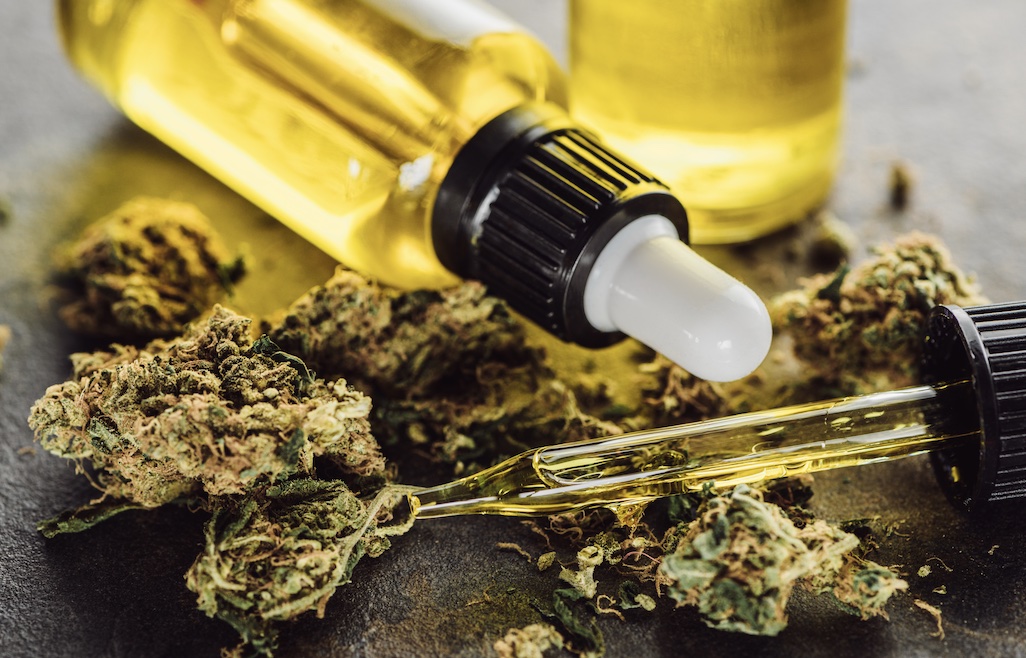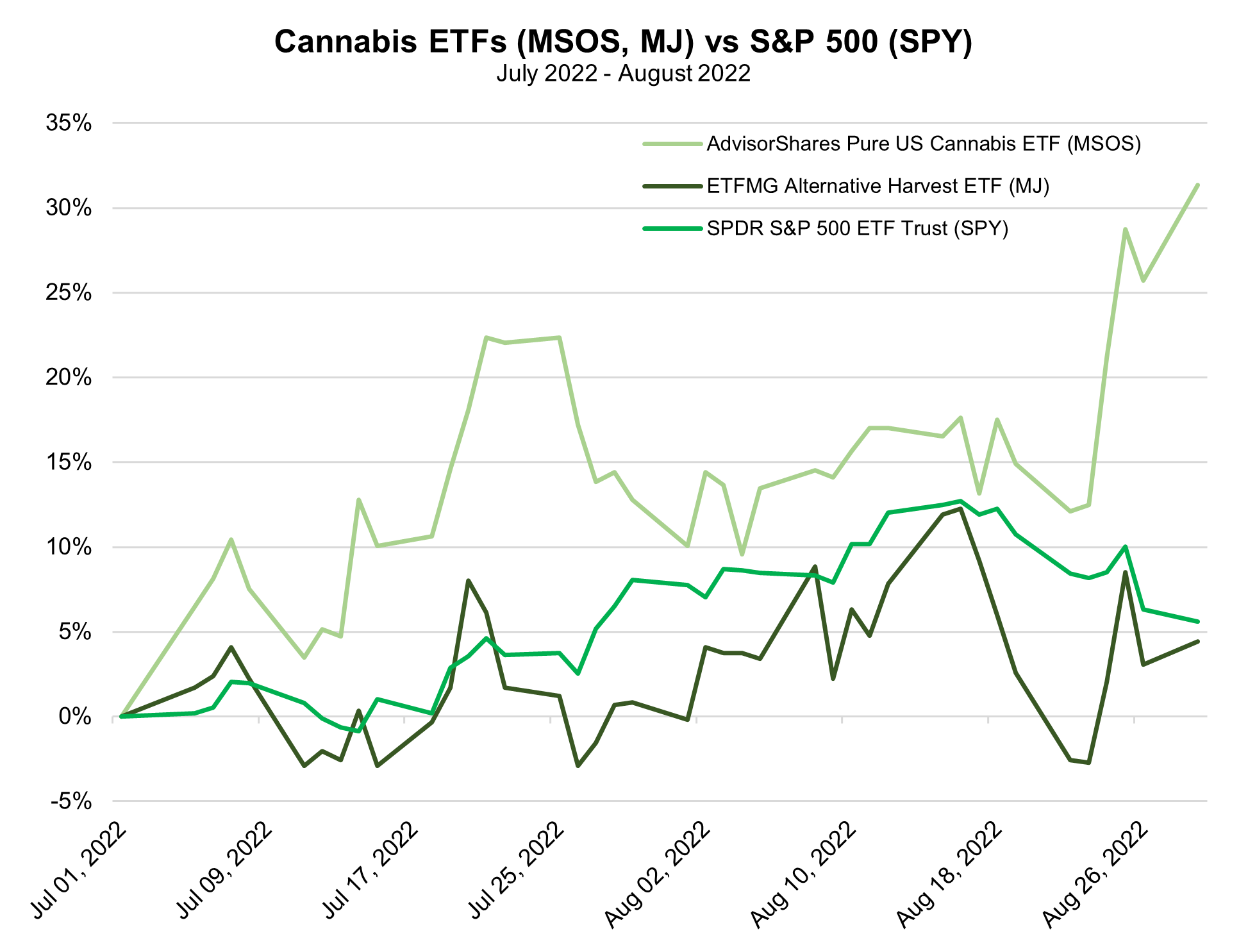|
Per new survey results from Gallup, more Americans openly admit that they smoke marijuana (16%) than those who say they’ve smoked cigarettes in the past week (11%). That is the first time the popularity of cannabis has exceeded cigarettes in the recurring survey that Gallup has been conducting since 2013. Just this year, Gallup begun asking about whether people consume cannabis edibles and 14% responded that they do, suggesting both smoking and eating cannabis is more common among Americans than having smoked a cigarette over the past week.
Moreover, a generational shift in consumer preference is underway. Of people aged 18 to 24, 69% prefer marijuana to alcohol, according to a recent survey by New Frontier Data, a cannabis research firm cited by Bloomberg. Consumers up to age 44 now exhibit a similar preference for cannabis.
Gallup data from earlier this month shows that more than twice as many Americans think that marijuana has a positive impact on its consumers and society at large than those who say the same about alcohol. The majority, representing 53% of respondents, said marijuana has a “positive” impact on the consumer and 49% said the plant is good for society. Only 27% said that alcohol is good for the individual drinker while 23% said alcohol is a societal positive.
A more positive view toward cannabis was consistent among respondents who do not use either substance. 35% of non-cannabis users said the plant is good for the people who do use it and 27% said it was good for society. Meanwhile, just 14% of non-drinkers say alcoholic beverages are positive for the drinker or society.
MRP has been following a shift in US sentiment toward deregulation of cannabis use for both medical and recreational purposes for several years now. The rising popularity of cannabis compounds broader data from Pew Research in 2021, which found that 91% of American adults now believe marijuana should be legal for either medical or recreational use.
These trends bode well for continued action at the state level to deregulate medical and recreational use of cannabis, as well as the possibility of revoking the federal prohibition altogether.
Successful initiatives to do so have been shown to increase consumption, as a new study suggests people in US states that legalize recreational cannabis use it 20% more frequently than those in states that haven’t legalized it. As part of a study published in Addiction, researchers came to that conclusion by reviewing data from either the Minnesota Center for Twin Family Research or the University of Colorado, Boulder Center for Antisocial Drug Dependence, with a total of 3,452 individuals (split between 1,700 individuals from Minnesota and 1,752 from Colorado). The study used twins to explore the frequency of cannabis across each state. According to the paper, highlighted by High Times:
“Using a longitudinal design accounting for age, sex and earlier cannabis use, we found a ~24% increase in mean cannabis use frequency attributable to legalization… Furthermore, co-twin control results indicate that within monozygotic pairs, the twin living in a legal state uses cannabis ~20% more frequently than their illegally residing co-twin.”
Despite the wave of popularity and positive sentiment prevalent in the data, US sales of Cannabis have been a mixed bag in 2022, likely due to high inflation testing the wallets of American consumers.
Per MJBizDaily, newer markets that have only recently legalized medicinal or recreational cannabis use, including Missouri, Arizona, and Iowa, experienced double or triple-digit annual growth rates through the first seven months of the year. By contrast, more mature markets in California, Colorado and Oregon contracted, some declining 20% or more compared to the same period in 2021.
Prices have been relatively stable for cannabis until recently since many growers upped production and boosted inventories in recent years, but a recent survey from national cannabis accounting and advisory firm GreenGrowth CPAs, highlighted by Green Entrepreneur, shows 1 in 4 cannabis operators have announced plans to raise their prices. Nearly half of the survey participants said cannabis business has dropped over the last 12 months.
Elsewhere in North America, Statistics Canada reported cannabis consumers spent C$377.5 million ($290.8 million) on regulated adult-use products nationwide in June, growing 1% over May’s total to another monthly record. Cannabis is legal for recreational use across Canada, and it has become a haven for some of the world’s largest cannabis enterprises.
The next big potential disruptor investors will be watching in the cannabis market is the US mid-term elections. Several different cannabis reform bills focused on banking regulations, interstate commerce, restorative justice, and other initiatives have managed to make their way to the floor of congress, but each has been defeated. The Democrat majority House of Representatives has had a decent amount of success in passing cannabis legislation (Democrats on the whole are more friendly toward cannabis reform), but the Senate has represented a perpetual stumbling block. The Senate technically has a Democratic majority as well, but is actually split evenly at 50-50 between Republicans and Democrats (including two Independents who caucus with the Democrats).
Major poll analyst FiveThirtyEight pegs Democrats’ chance to hold the Senate at 67 in 100. However, they project a much greater likelihood of Republicans taking back the House at 77 in 100. Elected Republicans are less opposed to cannabis reform than they have been in the past, but a red House would undoubtedly dampen confidence in any substantial change to federal law on the issue and likely have a negative impact on valuations in the cannabis business. |





Leave a Reply